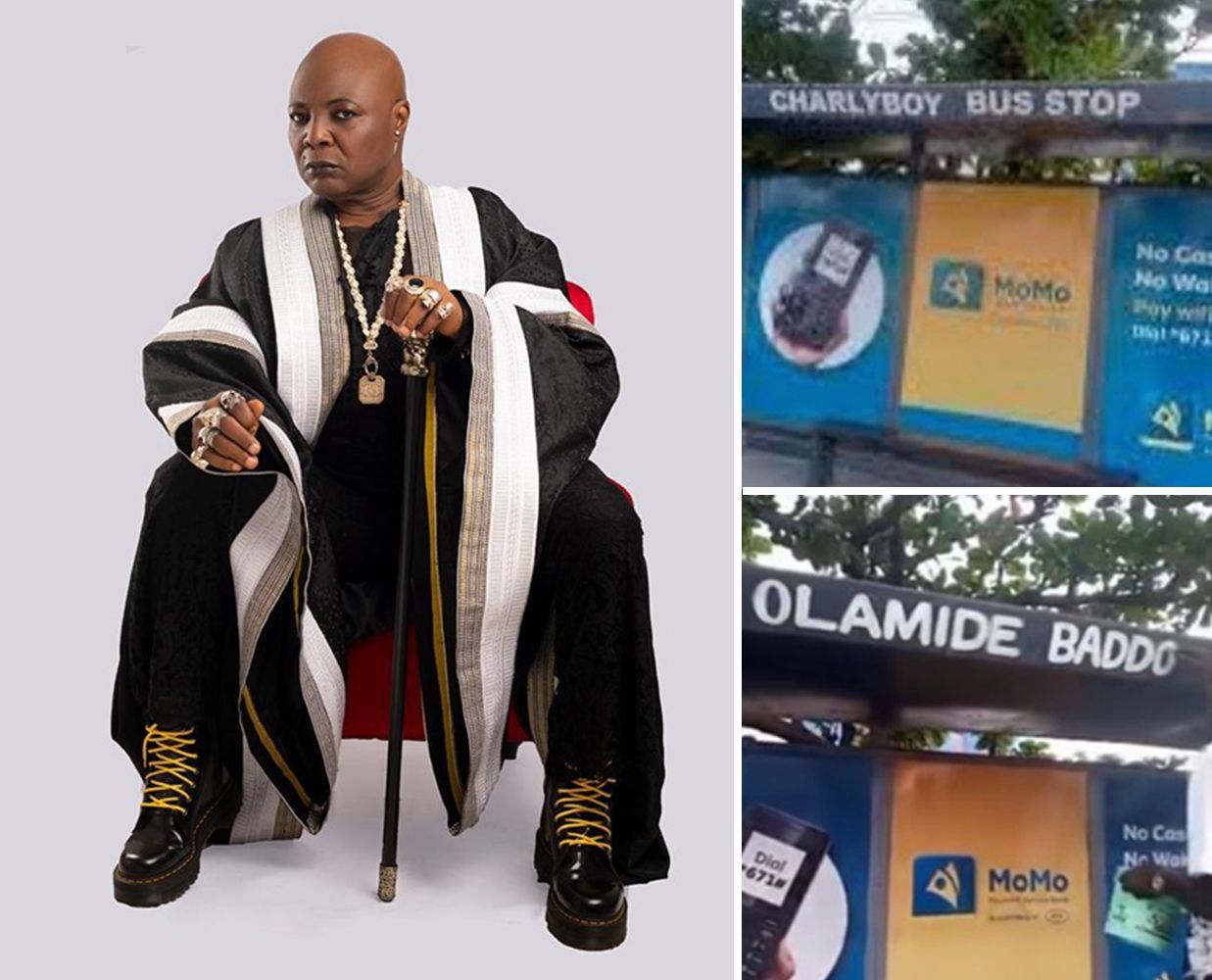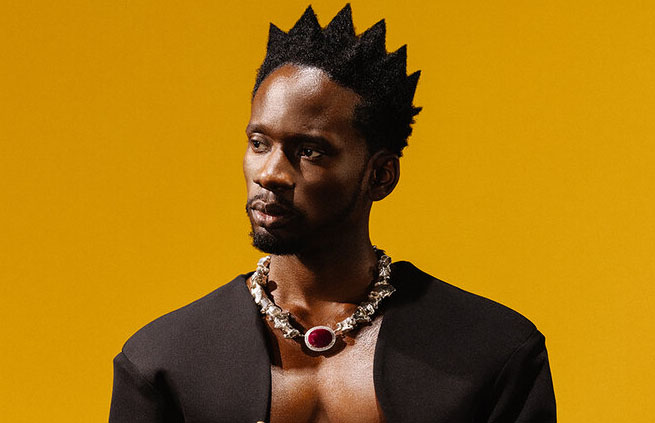
“You Can’t Touch My Record!” – Charly Boy Slams Decision to Rename Iconic Bus Stop After Olamide Baddo

The air around Lagos is buzzing with controversy and divided opinions as veteran entertainer and activist Charles Oputa, popularly known as Charly Boy, fires back at the recent renaming of the “Charly Boy Bus Stop” in Gbagada to “Olamide Baddo Bus Stop” by residents of the area. The outspoken entertainer did not hold back in his reaction, describing the move as “silly and petty,” while boldly defending his legacy and contributions to the community.
The Charly Boy Bus Stop, located in the Gbagada axis of Lagos, had long stood as a symbolic reference point, named after the eccentric singer and activist who was once a prominent resident of the area. For years, it served not only as a transit marker but also as a representation of Charly Boy’s larger-than-life persona and his impact on the local cultural scene. However, a wave of change swept through the neighborhood over the weekend, when a group of youths, said to be fans of music superstar Olamide, reportedly took it upon themselves to repaint the signage and rebrand the area as “Olamide Baddo Bus Stop,” sparking widespread attention both online and offline.
In a strongly worded response on social media, Charly Boy addressed the issue head-on, asserting that the decision was disrespectful and a blatant attempt to rewrite local history. “That was a bit silly and petty,” he said in a video posted to his X (formerly Twitter) handle. “If it’s about what one has done for that community, go and verify. You can’t touch my record.”
The statement has since gone viral, igniting a heated debate among Nigerians. While some have sided with Charly Boy, praising his contributions to activism, music, and youth development, others have applauded Olamide’s rise as a grassroots hero and cultural icon, especially among the younger generation. The tension between old guard and new wave artists has suddenly become the talk of the town, highlighting a deeper generational divide.
Charly Boy, known for his unfiltered takes and rebellious style, reminded critics and fans alike of his years of service to the people of Gbagada. According to him, his influence goes beyond fame and extends to real investments in youth empowerment, community support, and advocacy. “I was there when there was nothing. We built that area with love, energy, and passion. I wasn’t just an entertainer; I was a voice, a leader, and a builder. Don’t come and erase that with graffiti and hype,” he remarked.
On the other side of the conversation stands Olamide Adedeji, fondly known as Olamide Baddo, who has yet to publicly respond to the unfolding drama. But his fanbase is not staying quiet. Social media users, particularly on TikTok and Instagram, have flooded comment sections with support for the renaming, citing Olamide’s undeniable influence in the Nigerian music scene and his consistent representation of the street and indigenous culture.
“Olamide represents us. He’s the king of the street. He gave us voice, gave many artists their break, and put Bariga and Gbagada on the map globally. It’s only right that we honor him,” one user wrote on Instagram.
The Lagos State government, for its part, has not released any official statement regarding the bus stop renaming. It remains unclear whether the name change has any legal backing or if it was merely an unofficial action taken by enthusiastic fans. Nonetheless, the public attention it has garnered may eventually push local authorities to make a pronouncement on the matter.
The renaming also opens up a larger conversation about public landmarks and the cultural importance of naming. Who gets to decide which name stays or goes? What should be the criteria for naming spaces after individuals? Should legacy be based solely on popularity, or on tangible contributions to the development of a community?
Charly Boy’s reaction has rekindled interest in his past activism and social contributions. Many are now revisiting archives of his work with Nigerian youths, his role in leading protests against government injustice, and his unconventional but impactful methods of engaging the public on issues that matter. “Charly Boy was a movement before movements became hashtags,” tweeted one supporter.
The situation also highlights the generational clash between the icons of yesteryears and the current crop of celebrities who wield enormous social media power and loyal fanbases. For some, this incident is not just about a bus stop; it’s about the evolving definition of relevance, respect, and recognition in Nigerian society.
Meanwhile, the physical site of the now-disputed bus stop has become a mini tourist attraction, with passersby stopping to take photos of the altered sign. Street vendors and okada riders reportedly use both names interchangeably depending on the customer. “Some people say Charly Boy, others say Olamide. Me I no know again. I just dey call am ‘the bus stop near Total filling station,’” a commercial rider quipped, laughing.
Whether the name “Charly Boy Bus Stop” will be officially reinstated or if “Olamide Baddo Bus Stop” will stick remains to be seen. But one thing is certain: this moment has sparked conversations around identity, honor, and the legacy of Nigeria’s cultural icons.
As for Charly Boy, he appears unfazed by the uproar. In a follow-up post, he hinted that his legacy goes far beyond a bus stop. “I’m not fighting over paint on a wall. My legacy is in hearts, in history, in the blood of the people I fought for,” he said, signing off with his trademark defiance.
And so, the debate rages on—not just about who deserves a bus stop, but about what it truly means to be remembered.


